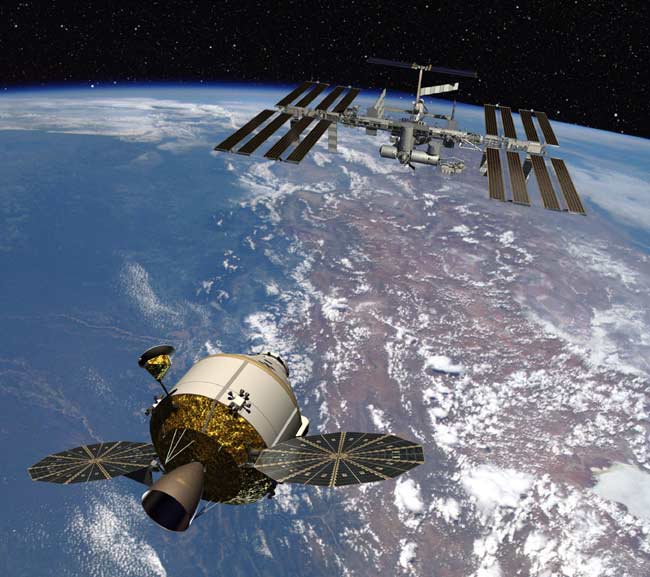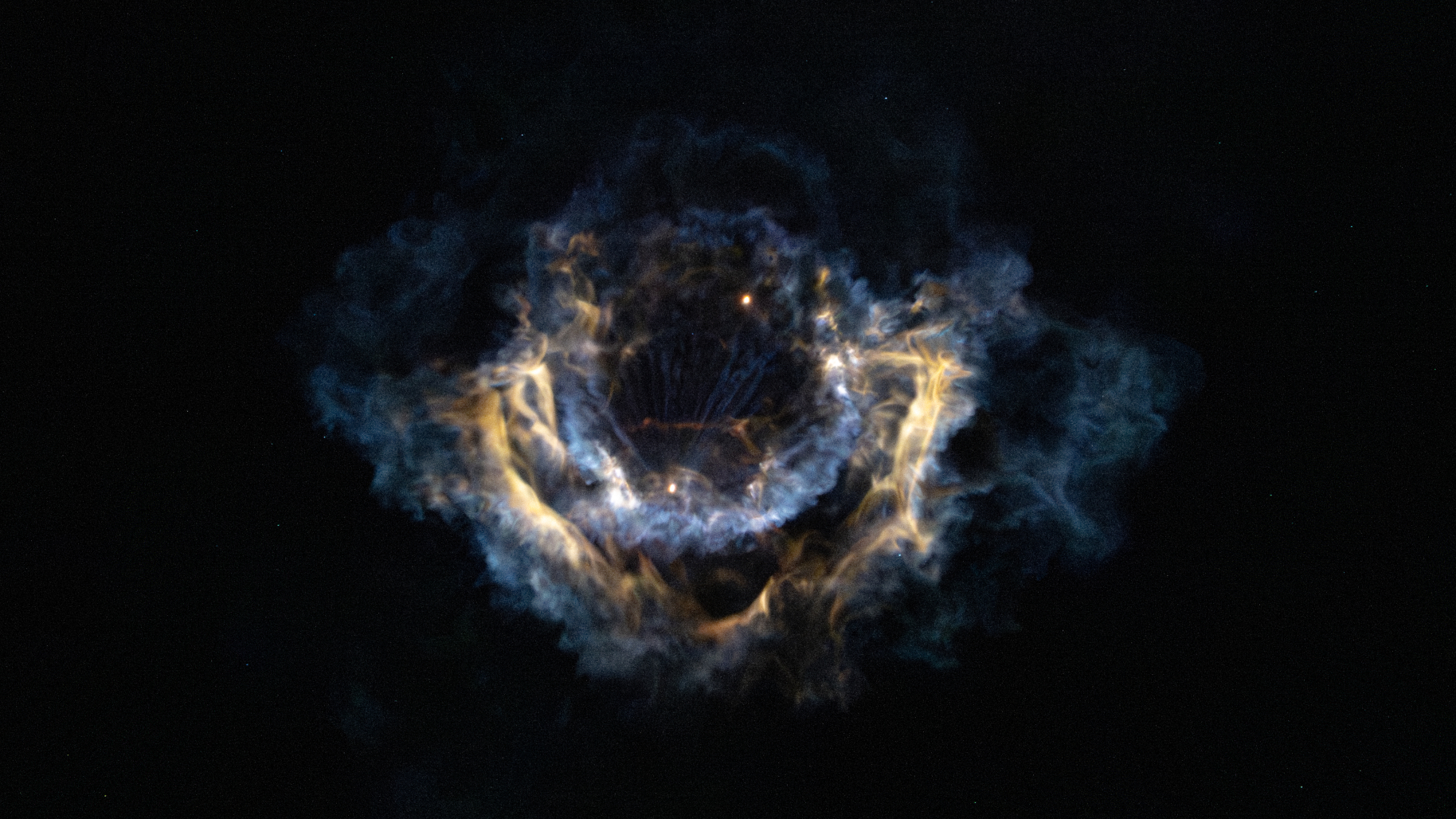NASA Budget Too Slim to Reach Moon by 2020, Panel Says

Breaking space news, the latest updates on rocket launches, skywatching events and more!
You are now subscribed
Your newsletter sign-up was successful
Want to add more newsletters?

Delivered daily
Daily Newsletter
Breaking space news, the latest updates on rocket launches, skywatching events and more!

Once a month
Watch This Space
Sign up to our monthly entertainment newsletter to keep up with all our coverage of the latest sci-fi and space movies, tv shows, games and books.

Once a week
Night Sky This Week
Discover this week's must-see night sky events, moon phases, and stunning astrophotos. Sign up for our skywatching newsletter and explore the universe with us!

Twice a month
Strange New Words
Space.com's Sci-Fi Reader's Club. Read a sci-fi short story every month and join a virtual community of fellow science fiction fans!
A White House panel charged with reviewing NASA's exploration plans has dropped any hope of sending astronauts directly to Mars and found the space agency's budget too slim to accomplish its goal of returning humans to the moon by 2020.
After more than six hours of public deliberation on Wednesday, the 10-member committee overseeing the Review for U.S. Human Space Flight Plans decided not to include a plan to send astronauts straight to Mars - called Mars Direct - on its list of options to be considered by President Barack Obama because of its daunting challenges and cost.
"We think Mars Direct is a mission that we're really not prepared to take on technically or financially, and it would likely not succeed," said the committee's chairman Norman Augustine, a former Lockheed Martin CEO, late Wednesday after the televised meeting in Washington, D.C. "I really want to emphasize that we're not giving up on Mars at all."
A manned Mars mission is the ultimate goal, but shifting all of NASA's focus on getting there as soon as possible is not feasible, he added.
The committee is expected to present its initial report to NASA Administrator Charlie Bolden and White House science adviser John Holdren on Friday and file a final version for President Obama's review by the end of the month.
Funding woes
Augustine's committee is reviewing NASA's plan to retire its aging space shuttle fleet and replace it with a capsule-based Orion spacecraft as part of a larger effort to return astronauts to the moon by 2020. But NASA's current budget for human spaceflight through 2020 is not enough to cover the costs of achieving its baseline lunar goal, let alone other alternative options, the committee found.
"This budget is just simply not friendly to exploration," said committee member Sally Ride, a former astronaut and the first American woman in space. "It's very difficult to find an exploration scenario that actually fits within this very restrictive budget guidance that we've been given."
Breaking space news, the latest updates on rocket launches, skywatching events and more!
NASA has a budget of about $80 billion for human spaceflight through 2020, about $28 billion less than projected when it first chose the Orion spacecraft and its Ares rockets to succeed the space shuttle fleet. Orion spacecraft are not expected to begin operational flights until 2015, the committee said.
Augustine said that NASA's exploration budget has been cut repeatedly since announcing the new space exploration plan in 2005, hindering its progress. Technical and other delays have also led to the current shortfall, he added. Still he and his committee were surprised none of their options fit in NASA's current budget.
'I did think that one of the current options would fit under the present funding budget," he said. "I thought it might be quite a while before you really got into space and do those exciting things that we were talking about — I guess I should have realized that it wasn't possible."
Narrowing options
Last week, the committee culled a list of 3,000 options for human spaceflight down to about seven different scenarios.
On Wednesday, committee members refined that list down to four general scenarios that include more funding. They include building Orion spacecraft for eventual manned mission to the moon, as well as options for sending astronauts farther out into deep space to visit near-Earth asteroids or the stable Lagrange points around Earth by the mid- to late-2020s or 2030.
"We very much like the deep space option," Augustine said, adding that his committee is not endorsing one option over another. "It's a doable, viable option.:
Only one of the four scenarios includes NASA's planned Ares I rocket, the booster designed to launch Orion capsules into space. Some included extending the International Space Station's lifetime beyond 2016 to 2020.
The committee strongly favored encouraging commercial vehicles for launching astronauts into orbit and suggested setting $2.5 billion aside between 2011 and 2014 to spur development in those spacecraft. It also included options that included spacecraft more heavily derived from current space shuttles, as well as current unmanned heavy-lift rockets like the Delta 4 Heavy and variants of NASA's giant Ares V rocket envisioned to launch lunar landers into orbit.
The potential for in-orbit refueling was cited as a key technological goal for some committee members. But adequate funding is key if NASA is to tackle an innovative, inspiring program that can capture the attention of the American public, committee members said.
"Our view is that it will be difficult with the current budget to do anything that's terribly inspiring in the human spaceflight area," Augustine said.

Tariq is the award-winning Editor-in-Chief of Space.com and joined the team in 2001. He covers human spaceflight, as well as skywatching and entertainment. He became Space.com's Editor-in-Chief in 2019. Before joining Space.com, Tariq was a staff reporter for The Los Angeles Times covering education and city beats in La Habra, Fullerton and Huntington Beach. He's a recipient of the 2022 Harry Kolcum Award for excellence in space reporting and the 2025 Space Pioneer Award from the National Space Society. He is an Eagle Scout and Space Camp alum with journalism degrees from the USC and NYU. You can find Tariq at Space.com and as the co-host to the This Week In Space podcast on the TWiT network. To see his latest project, you can follow Tariq on Twitter @tariqjmalik.
